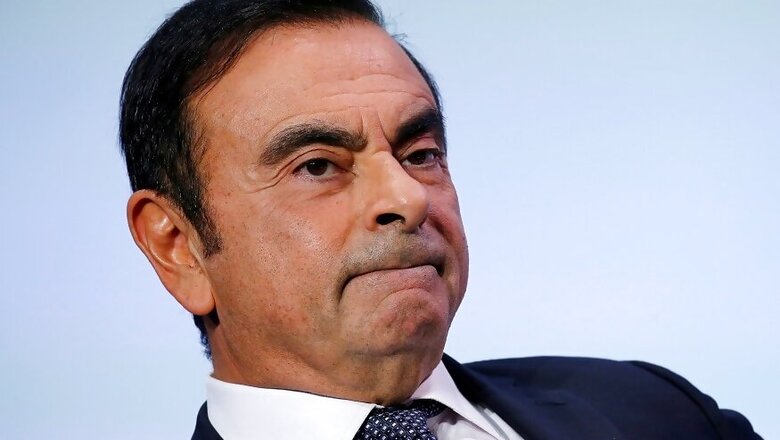
views
Tokyo: The high-profile case of ex-Nissan chairman Carlos Ghosn has shone a light in Japan on what critics call "hostage justice", in which suspects can be held for months after arrest, but any reforms will likely be incremental and slow.
Ghosn, a former titan of the global auto industry, who has French, Brazilian and Lebonese citizenship, was released on bail of 1 billion yen ($9 million) on Wednesday after being held for more than 100 days following his November 19 arrest by prosecutors on suspicion of under-reporting his compensation.
In a scenario common in Japan's justice system, Ghosn was arrested two more times on fresh suspicions, including aggravated breach of trust, each time allowing prosecutors to keep him in custody and interrogate him without his lawyers being present.
The term "hostage justice" refers to holding the suspect in custody while pressing for the "ransom" of a confession.
Ghosn's case has sparked harsh international criticism of Japan's justice system, in which 99.9 percent of people charged with crimes are convicted.
"The affair was reported abroad and many Japanese know that the Japanese criminal justice system is not necessarily at a global standard," wrote former Tokyo District Court judge Takao Nakayama in the Nikkei business daily.
"In that sense, the Tokyo prosecutors opened a Pandora's box," he wrote. The article was part of a full-page spread headlined "What should be fixed in Japan's 'hostage justice'."
Granting bail after indictment and ahead of trial is rare for suspects who, like Ghosn, maintain their innocence, with the stated reason being fears the defendant would flee, tamper with evidence or seek to sway witnesses.
Ghosn had to agree not only to stay in Japan but to having surveillance cameras placed at his residence and to limits on his mobile phone and computer use. His first two requests for bail were rejected.
"I do think that this has made the whole system, that most Japanese on the street don't really know exists, much more visible and much more vulnerable to criticism," said Tokyo-based lawyer Stephen Givens.
Domestic civil rights groups and lawyers including the Japan Federation of Bar Associations have long criticised a system they say gives too much power to prosecutors and is too reliant on confessions, some later found to have been forced and false.
ASKING QUESTIONS
Ordinary citizens - and media - often equate arrest with guilt.
"Japan is a country that respects authority and I think most people assume that when somebody is arrested, that there's a reason for that," Givens said.
"Media ... are of that view - although I do think that some of the mainstream media are beginning to ask questions and present other views."
Prosecutors have defended the system.
"Each country has its own culture and systems," said Shin Kukimoto, a deputy public prosecutor, at a news conference in December.
"I'm not sure it's right to criticise other systems simply because they are different."
High-profile cases involving forced confessions periodically attract public attention, although no outcry has been sustained.
In a possible sign the issue was creeping onto the public radar even before Ghosn's arrest, a private broadcaster launched in 2016 a television drama called "99.9 Criminal Lawyers" about defence lawyers fighting the odds against acquittal. The title refers to the conviction rate.
Still, there is caution over prospects for change.
"I'm sceptical and it depends on what you mean by 'change'," said Colin Jones, a law professor at Kyoto's Doshisha University.
"Courts are institutionally subject to foreign pressure. The trend has been a gradual increase in the rejection of detention warrants and we might see a trend toward incremental change," he said.

















Comments
0 comment